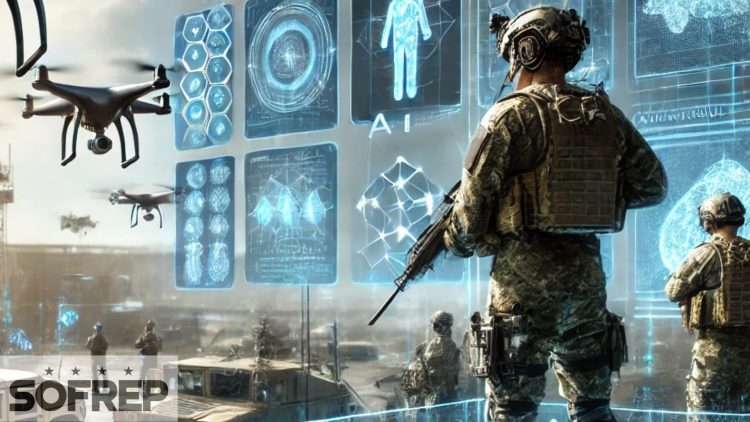It’s divided into three main sections: the impact of AI on global peace and security, how to implement responsible AI in the military, and imagining future governance for AI use.
One of the key points is that AI must always be used in compliance with international and national laws.
There’s also a heavy emphasis on keeping human judgment at the core of AI-related decisions, especially when it comes to the use of force.
After all, the goal isn’t to let AI run wild but to enhance military operations in a way that respects human values and rights.
Another critical area is the need for confidence-building measures to ensure transparency and trust among nations using AI in their military strategies.
The blueprint also tackles the risks of AI being used for weapons of mass destruction, stressing the need for strong safeguards to prevent this technology from falling into the wrong hands, especially terrorist groups.

Who’s On Board?
While 61 countries, including South Korea, the United States, Japan, and several European nations, endorsed the REAIM Blueprint, not everyone was enthusiastic.
China opted out, and Russia wasn’t invited to the summit due to its ongoing invasion of Ukraine.
Dutch Defense Minister Ruben Brekelmans noted that achieving full global consensus is likely impossible but stressed the importance of starting the conversation and taking action where possible.
“We also need to be realistic that we will never have the whole world on board,” Defence Minister Brekelmans said, quoted by Reuters. “How do we deal with the fact that not everyone is complying? … That is a complicated dilemma that we should also put on the table.”
A Step Toward Action
This year’s summit marks a shift from merely discussing AI’s impact to actually taking steps toward regulating its military use.
While the first session, held in The Hague last year, focused on building a shared understanding, the Seoul summit pushed for action.
The goal is not just to talk about responsible AI use but to start implementing guidelines that make a real difference.
South Korea plans to continue this important conversation at the upcoming United Nations General Assembly, signaling that this issue will remain front and center on the global stage.
REAIM: Why Does This Matter?
The world of AI is growing at a rapid pace, and the military isn’t immune to this evolution.
From autonomous drones to AI-guided missile systems, the technology is changing how wars are fought. The question now is how to balance innovation with responsibility.
The REAIM Blueprint represents a significant step in that direction.
It’s a collaborative effort to ensure that AI’s incredible potential is harnessed ethically, without putting international peace and security at risk.
But the challenge remains—how do we get countries that are hesitant or outright resistant, like China, on board?
While the REAIM Blueprint is a good starting point, the next big hurdle will be finding ways to make this framework more inclusive and globally adopted.
It’s clear that the conversation about responsible AI in the military is just beginning, and there’s a long road ahead.
Below is a replay of the REAIM 2024 Ministerial Roundtable stream on Tuesday, September 10.
A Future Shaped by AI, Guided by Responsibility
AI in the military is no longer a futuristic concept—it’s here (whether you folks like it or not).
With it comes the responsibility to ensure it’s used in ways that strengthen security and peace rather than undermine them.
The REAIM summit in Seoul is just one part of a much larger, ongoing conversation about how we can develop AI technologies that are ethical, effective, and, above all, human-centric.
The next steps will be crucial in determining how AI shapes the future of warfare and, ultimately, the world.
—
Disclaimer: SOFREP utilizes AI for image generation and article research. Occasionally, it’s like handing a chimpanzee the keys to your liquor cabinet. It’s not always perfect and if a mistake is made, we own up to it full stop. In a world where information comes at us in tidal waves, it is an important tool that helps us sift through the brass for live rounds.










COMMENTS